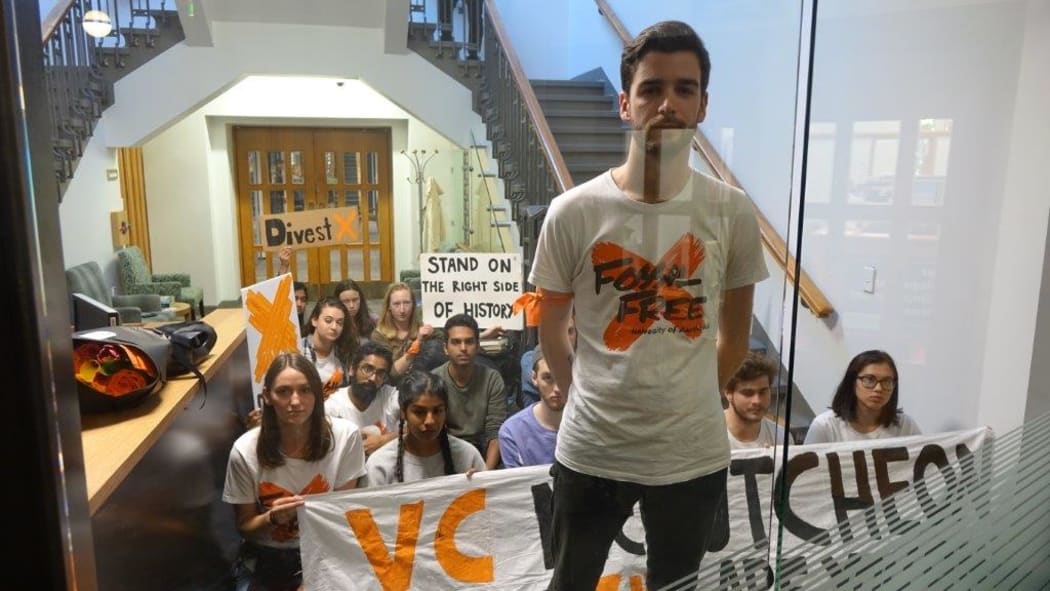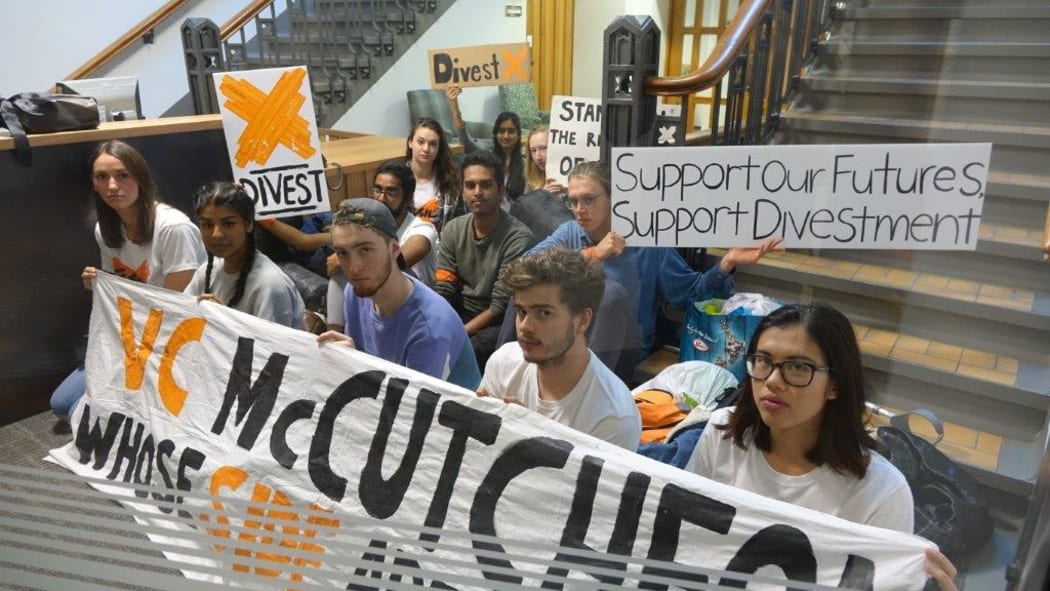A group of Auckland University students have occupied a wing of the University's administration block, calling for it to ditch its fossil fuels investments.

Alex Johnston, spokesperson for Fossil Free University of Auckland, with other protestes locked in the Vice-Chancellor's reception area by campus security. Photo: RNZ / Anusha Bradley
Fourteen students started a sit-in at 8am today to demand the Vice-Chancellor publicly support their call for divestment.
Campus security locked the students in the reception area to prevent other students joining them.

Photo: RNZ / Anusha Bradley
Speaking from behind a locked glass door, group spokesperson Alex Johnston said about 1.5 percent of the university's $120 million investment fund was in companies with fossil fuel interests.
Though it was a small amount, divestment would signal to the fossil fuel industry that its business model was "no longer compatible with our futures".
"This is something that's a really easy step for the university to take, to show that it takes climate change seriously."
In a statement, a spokesperson said the university itself didn't hold any investments in fossil fuel companies, and it had no jurisdiction over the University Foundation, which manages its own funds, mostly for educational charitable purposes.
"However, we are aware that the Foundation's investment managers are signatories to the UN Principles for Responsible Investment."
The statement said the university's specific objectives of seeking to reduce energy consumption, wastewater, waste to landfills and carbon dioxide emissions would "make a direct, rather than token, contribution to environmental sustainability."
Students had a right to voice their views but protests should be peaceful and not disrupt the normal activities of staff and students, it said.




